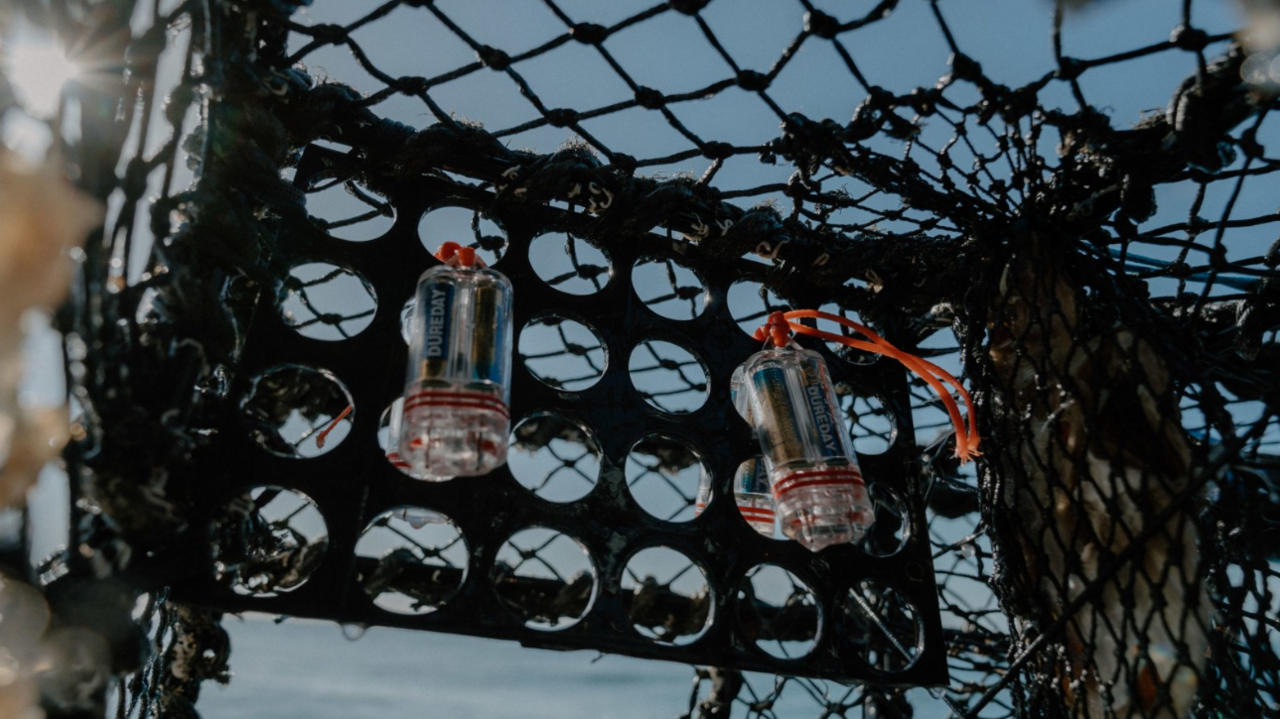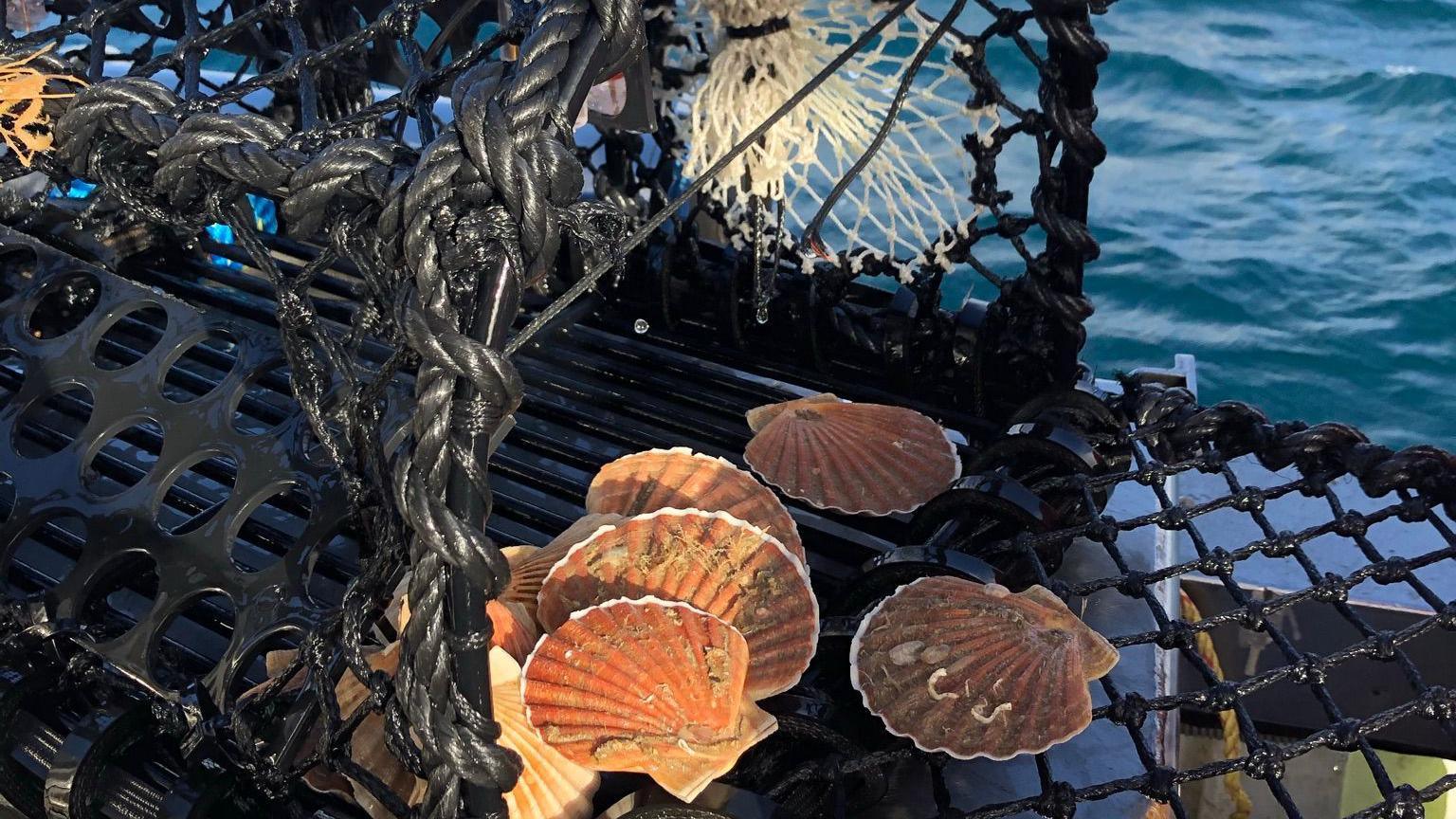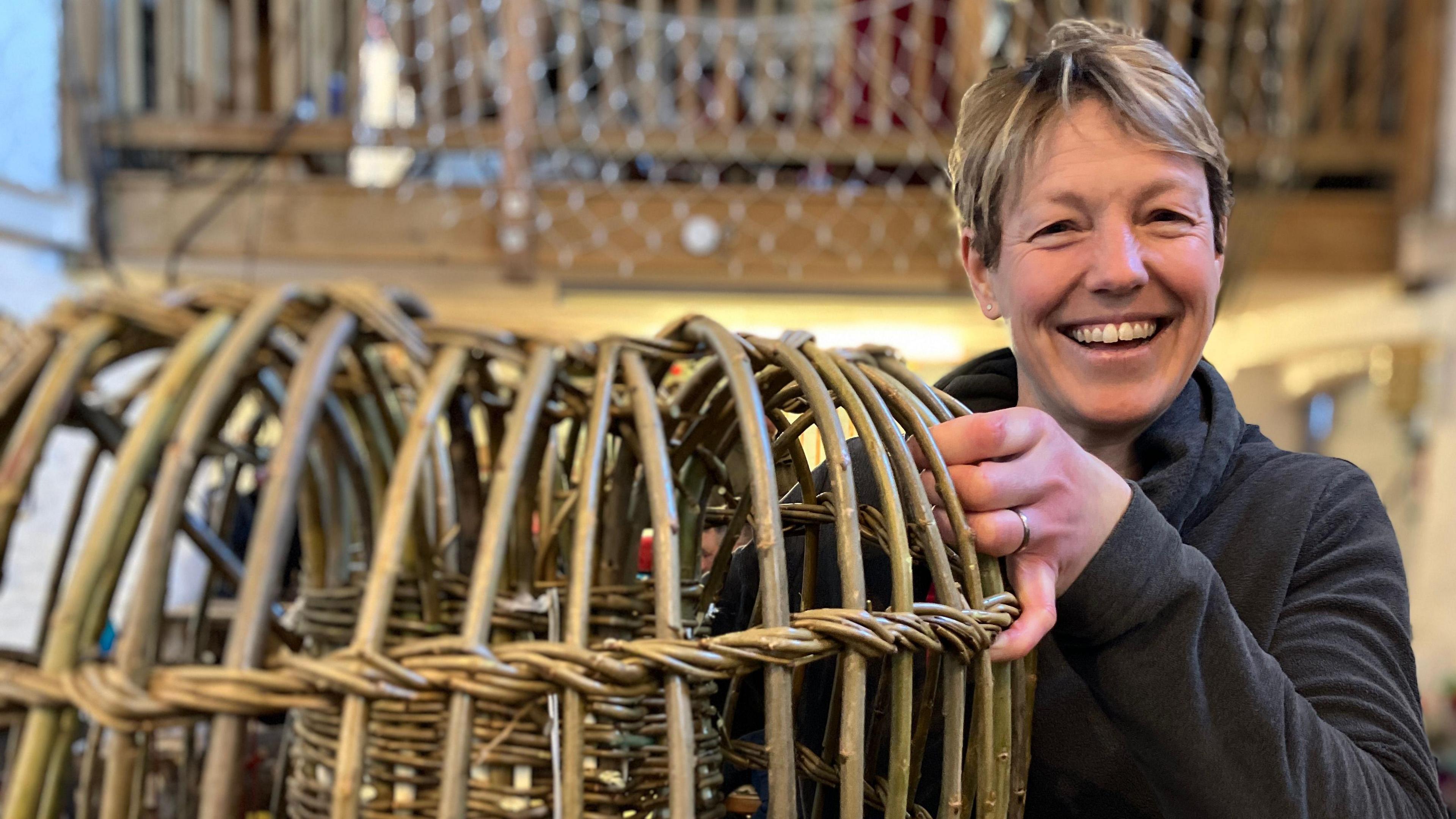LED pots catch 'significantly' more shrimp and fish

The university said the "attraction cascade" creates a self-baiting pot
- Published
Fishing pots fitted with LED lights catch "significantly" more fish and shrimp, a new study shows.
The research, by the University of Exeter and Fishtek Marine, showed pots fitted with lights caught up to 19 times more northern shrimp than unlit pots.
Dr Robert Enever, from Fishtek Marine, said it was thought the light attracts zooplankton, which in turn attract shrimp that eat it.
"And that entices larger fish predators into the pots to gobble up the shrimp," he explained.
'Self-baiting pot'
The university said the "attraction cascade" effectively creates a self-baiting pot.
It said the trial, carried out off Scotland's west coast, did not catch enough shrimp to be commercially viable but the amount might change in places with more shrimp.
Dr Tom Horton, from the centre of ecology and conservation on Exeter's Penryn campus, said shrimp and cod were often fished by trawling which could result in high by-catch and habitat disturbance.
"Finding lower-impact alternatives - including static gear such as pots - is essential for more sustainable fisheries," he added.
The study was funded by the UK Seafood Innovation Fund and Schmidt Marine Technology Partners.
Follow BBC Cornwall on X, external, Facebook, external and Instagram, external. Follow BBC Devon on X, external, Facebook, external and Instagram, external. Send your story ideas to spotlight@bbc.co.uk, external.
- Published21 January

- Published6 February
